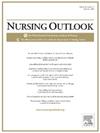Psychological distress of nurse managers in acute care: A scoping review
IF 3.7
2区 医学
Q1 NURSING
引用次数: 0
Abstract
Background
The psychological distress experienced by nurse managers (NMs) following emotionally challenging clinical events has been studied less than that of direct care nurses.
Purpose
The purpose of this scoping review of the literature was to understand evidence related to the psychological distress experienced by NMs, contributors to these distress responses, and the impact of psychological distress on NMs personally and professionally.
Methods
A scoping review of the literature was completed following the protocol and checklist for scoping reviews. Twenty-two studies were included in the final sample.
Discussion
Psychological distress responses were found to include second victim phenomenon, burnout, moral distress, secondary traumatic stress, post-traumatic stress disorder, anxiety, depression, and work-related stress. Contributors to psychological distress among NMs included inadequate support, value incongruence, resource scarcity, and workplace violence. Physical and emotional well-being, along with intent to leave, were noted as impacts of psychological distress in NMs.
Conclusion
Nurse managers experience psychological distress and need support in addressing work environment and organizational challenges. In addition to focus on direct care nurses, further study of the experiences of nurse managers related to psychological distress and how best to support them is needed.
急症护理中护士管理者的心理困扰:范围综述
研究背景:与直接护理护士相比,护理经理在经历具有情绪挑战性的临床事件后所经历的心理困扰研究较少。目的:通过对相关文献的范围综述,了解网络护士心理困扰的相关证据、心理困扰的成因以及心理困扰对网络护士个人和职业的影响。方法按照文献范围综述的方案和清单完成文献范围综述。最终样本包括22项研究。心理压力反应包括第二受害者现象、倦怠、道德压力、二次创伤压力、创伤后应激障碍、焦虑、抑郁和工作压力。造成中小企业员工心理困扰的因素包括支持不足、价值不一致、资源稀缺和工作场所暴力。生理和心理健康,以及离开的意图,被认为是NMs心理困扰的影响因素。结论护理管理人员在应对工作环境和组织挑战方面存在心理困扰,需要支持。除了关注直接护理护士外,还需要进一步研究护理管理者在心理困扰方面的经验,以及如何最好地支持他们。
本文章由计算机程序翻译,如有差异,请以英文原文为准。
求助全文
约1分钟内获得全文
求助全文
来源期刊

Nursing Outlook
医学-护理
CiteScore
6.20
自引率
7.00%
发文量
109
审稿时长
25 days
期刊介绍:
Nursing Outlook, a bimonthly journal, provides innovative ideas for nursing leaders through peer-reviewed articles and timely reports. Each issue examines current issues and trends in nursing practice, education, and research, offering progressive solutions to the challenges facing the profession. Nursing Outlook is the official journal of the American Academy of Nursing and the Council for the Advancement of Nursing Science and supports their mission to serve the public and the nursing profession by advancing health policy and practice through the generation, synthesis, and dissemination of nursing knowledge. The journal is included in MEDLINE, CINAHL and the Journal Citation Reports published by Clarivate Analytics.
 求助内容:
求助内容: 应助结果提醒方式:
应助结果提醒方式:


